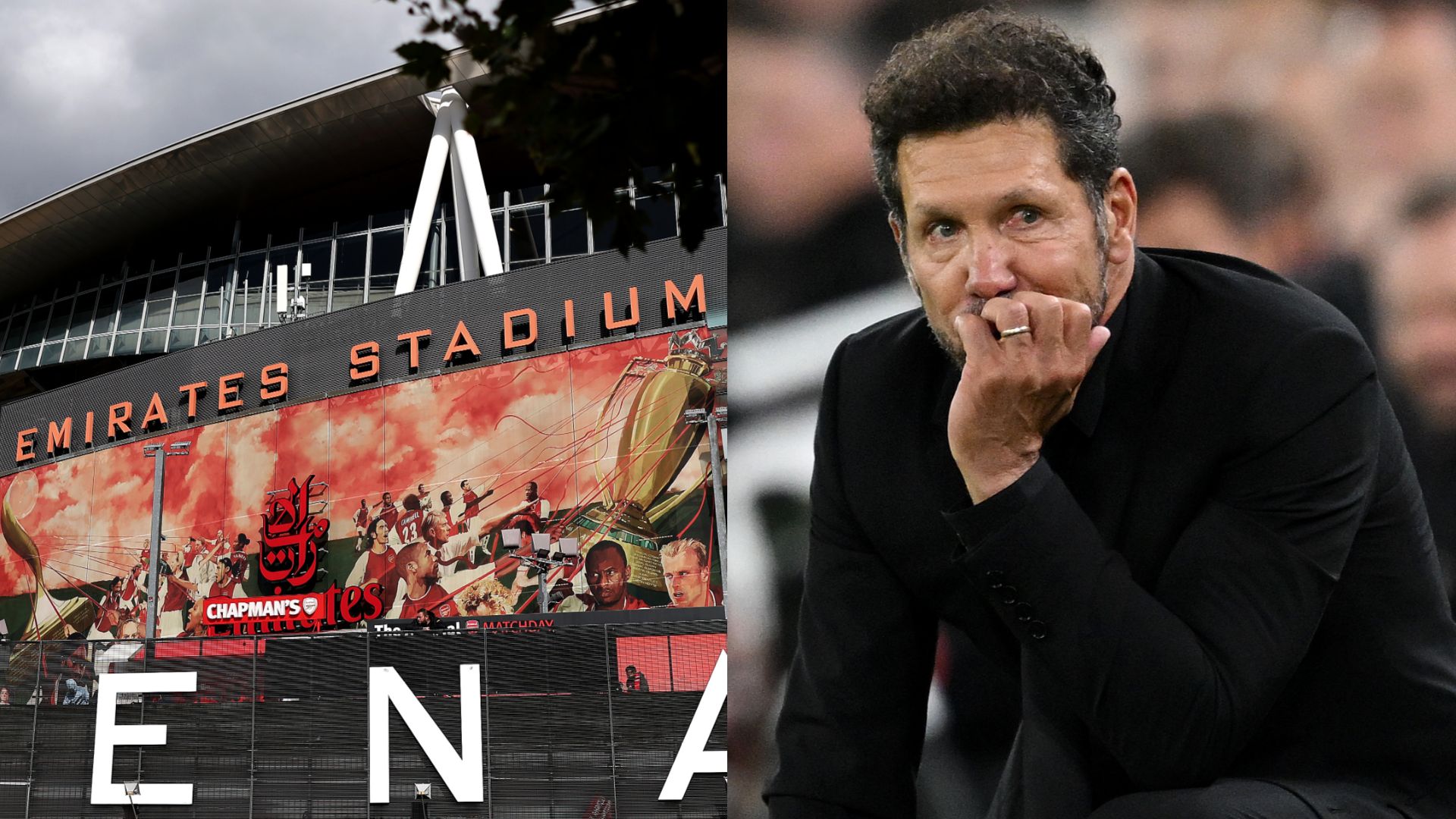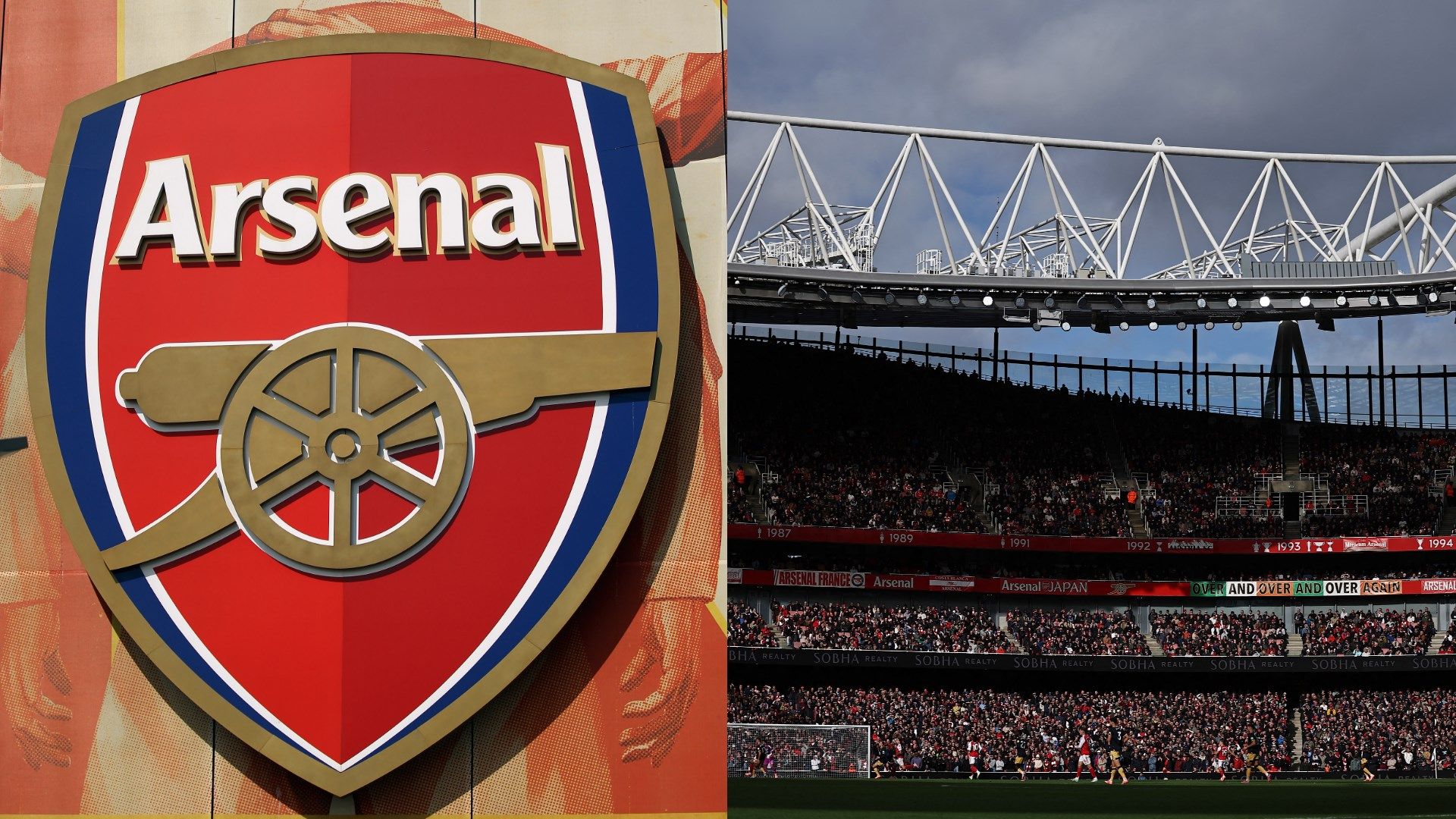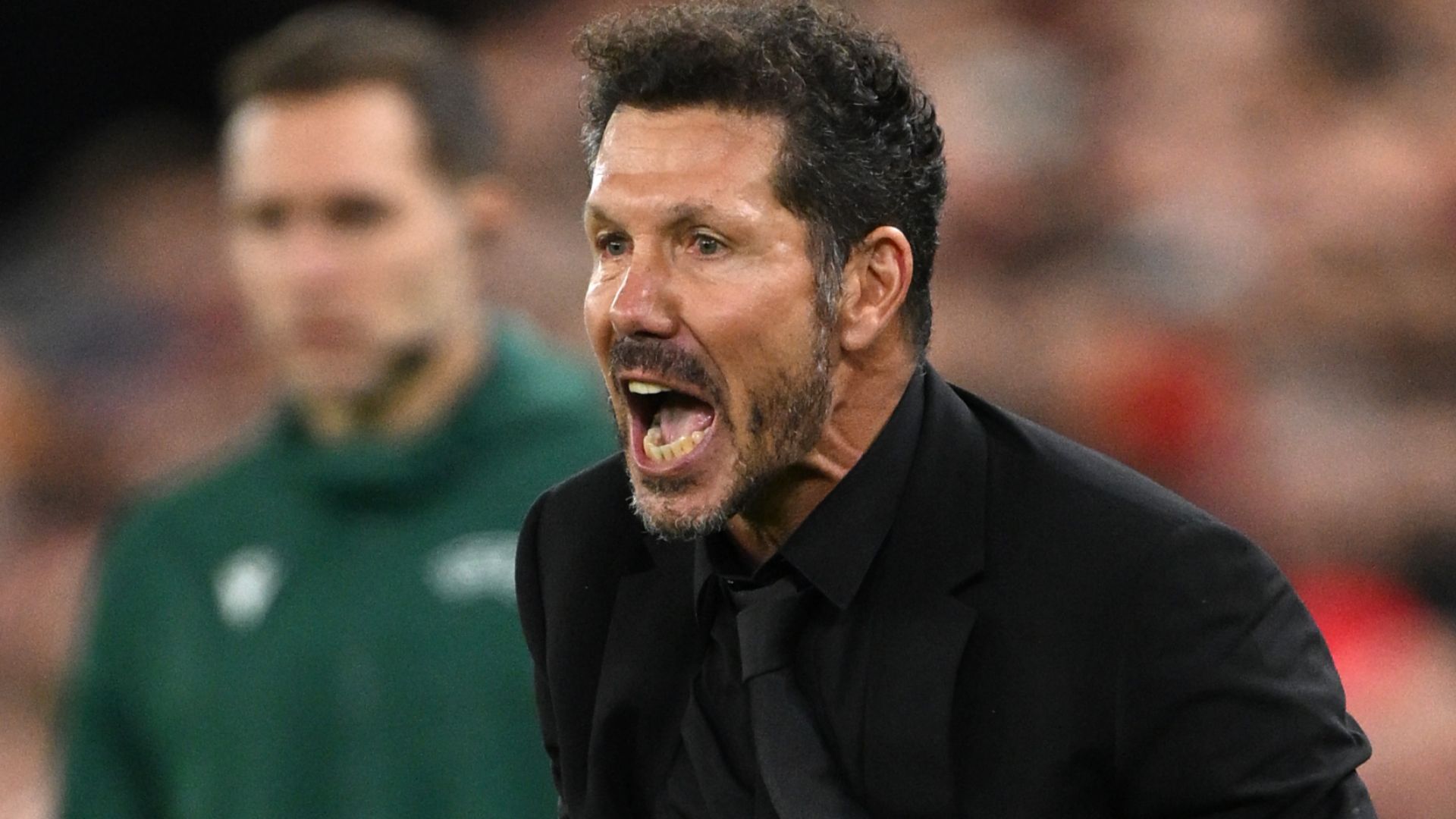


Atletico Madrid’s Fury Over Emirates Stadium Issues Ignites UEFA Dispute
In a stunning turn of events that highlights the importance of top-tier facilities in elite football, Atletico Madrid and their dissatisfaction with Emirates Stadium‘s amenities have sparked a formal challenge to UEFA regulations ahead of their high-stakes Champions League encounter with Arsenal. This incident underscores the expectations for world-class venues and the potential repercussions when standards falter, drawing attention to how even minor oversights can escalate into major controversies in international competitions.
UEFA Requirements for Stadium Infrastructure and Their Limitations
According to UEFA’s detailed guidelines, every dressing room in European tournaments must feature showers with hot water, a standard outlined in their infrastructure policies. Nevertheless, these mandates are specifically for official matches and do not cover casual training activities, revealing a gap between expected and actual application in such scenarios.
Atletico’s Expectations for Premier Facilities
Despite these nuances, the Spanish club believed that a prestigious location like Emirates Stadium should maintain flawless operations during their stay. Reports indicate that the visitors dealt with a shortage of hot water in their designated away dressing area, which marred their overall experience.
Training Disruptions and Initial Reactions
Under the guidance of coach Diego Simeone, Atletico Madrid‘s squad endured an intense workout at the venue, only to face challenges in recovering properly afterward, especially given the wet conditions from the English weather. Reliable sources, including The Athletic, noted that the water issue persisted for more than an hour without resolution, amplifying the team’s frustration.
Growing Discontent and Official Reporting
Team members from the red-and-white outfit expressed shock and irritation over the absence of hot water, prompting them to alert UEFA about this irregular circumstance. As per Cadena Ser, a wave of indignation swept through the Atletico Madrid group, turning a simple inconvenience into a point of contention.
Early Alerts to Hosts
Before commencing their practice, the Madrid team raised the matter with Arsenal staff, already puzzled as to how a renowned stadium like Emirates Stadium, often hailed as one of England’s finest, could suffer from such a basic shortfall.
Resolution Efforts and Their Outcomes
The malfunction affected both teams’ areas, and according to The Athletic, the problem was addressed roughly 40 minutes after Arsenal was informed. Although a solution was implemented prior to the end of Atletico Madrid‘s session, it was abbreviated, forcing the players to return to their lodging for proper rest and hygiene.
Apologies and Fixes from the Hosts
Officials at Emirates Stadium admitted the mistake and swiftly reinstated the hot water supply soon after the visiting team departed. The English side extended regrets to their Spanish rivals for the disruption caused.
Escalation to UEFA and Upcoming Matches
Undeterred, Atletico Madrid escalated the complaint to UEFA for further review, shifting focus now to securing vital points in the Champions League. This marks their second outing in England this season, following a thrilling 3-2 loss against Liverpool.
Current Standings and Team Performances
Currently positioned 10th in the Champions League standings, Atletico Madrid bounced back from their Anfield setback with a victory over Eintracht Frankfurt. On the other hand, Arsenal holds the fifth spot, having triumphed in matches against Olympiacos and Athletic Club.
Simeone’s Insights on the Opposition
Simeone commented on confronting a progressively stronger Arsenal team led by their Spanish manager, noting: “They’ve stuck with Mikel Arteta for five or six years, maintaining a distinct style they refuse to abandon. Instead, they’re enhancing it by recruiting top talent for key roles to further their vision. They battle hard in every Premier League campaign to the finish, earning accolades that aren’t always fully credited, but truly embody their essence. We must steer the match toward areas where we can make an impact. It’s an exceptional arena, energized by the fans and likely to be fast-paced.”
Assessing Arsenal’s Set-Piece Strengths
Addressing Arsenal‘s prowess in set-pieces, a trait Atletico Madrid has long valued, Simeone observed: “They boast excellent shooters, lofty defenders, and skilled aerial players. The frequency of their goals from these plays is remarkable; it’s the result of meticulous preparation. It’s a formidable asset. We leveraged similar tactics to win numerous games in 2014, and it’s a strategy they employ effectively too.”
League Positions and Match Preview
As they prepare for this fixture, Arsenal leads the Premier League with a three-point advantage at the top. Meanwhile, Atletico Madrid occupies fourth place in La Liga, trailing their city rivals Real Madrid by eight points in the race for Spanish dominance.
The Backstory Behind Atletico Madrid’s Complaint to UEFA
What Prompted the Formal Complaint?
Atletico Madrid’s decision to file a formal complaint with UEFA highlights ongoing tensions in European football, especially ahead of high-stakes Champions League clashes. The Spanish club raised concerns about the condition of Arsenal’s Emirates Stadium, pointing to potential unfair advantages that could affect player safety and game integrity. Keywords like “Atletico Madrid UEFA complaint” and “Emirates Stadium issues” have been buzzing in football circles, as fans and analysts debate the implications for future Champions League matches.
In recent weeks, reports from reliable football sources indicated that Atletico Madrid’s management felt compelled to act due to what they described as subpar stadium maintenance. This isn’t just about one game; it underscores broader Champions League rules on venue standards, which require pitches to be in optimal condition to ensure fair play. For teams like Atletico Madrid, who pride themselves on tactical precision, any environmental factor at the Emirates Stadium could disrupt their strategy against a formidable opponent like Arsenal.
Key Issues Raised in the Complaint
Atletico Madrid’s formal filing with UEFA outlined several specific grievances, making this a pivotal moment in the season. Let’s break it down:
- Pitch Quality Concerns: One of the main points centered on the Emirates Stadium’s pitch, which Atletico claimed was not up to Champions League standards. Reports suggested the surface was uneven and overly worn, potentially leading to injuries or unpredictable ball behavior. This is particularly relevant for a matchup against Arsenal, known for their fast-paced, high-pressure style.
- Safety and Player Welfare: The complaint emphasized player safety, with Atletico Madrid highlighting how poor maintenance could increase the risk of slips or strains. In an era where “Champions League player safety” is a growing keyword in discussions, this aspect resonated with fans worried about the physical demands of top-tier football.
- Logistical and Environmental Factors: Beyond the pitch, Atletico pointed to issues like inadequate warm-up facilities and potential crowd control problems. These elements could create an uneven playing field, especially in a packed stadium like the Emirates, where Arsenal’s home advantage is already significant.
This complaint reflects a larger trend in Champions League fixtures, where teams increasingly scrutinize opponent venues to level the playing field.
UEFA’s Handling of the Matter
UEFA’s response to Atletico Madrid’s complaint has been methodical, involving inspections and reviews to uphold the integrity of the competition. Officials quickly dispatched inspectors to the Emirates Stadium to assess the claims, emphasizing their commitment to enforcing “UEFA stadium standards.” Early feedback suggested that while the pitch was playable, minor adjustments might be necessary, which could set a precedent for how similar complaints are addressed in the future.
Experts in football governance have noted that UEFA often prioritizes “Champions League venue compliance,” using tools like pitch certification processes. In this case, the process included:
- Reviewing maintenance logs from Arsenal’s ground staff.
- Conducting on-site evaluations just days before the match.
- Consulting with independent experts to verify any potential risks.
Atletico Madrid’s proactive approach might encourage other clubs to voice similar concerns, potentially leading to stricter regulations across all Champions League host venues.
Potential Impact on the Arsenal vs. Atletico Madrid Matchup
The complaint could influence not just this specific game but the broader dynamics of Champions League encounters. With Arsenal pushing for a strong campaign and Atletico Madrid looking to assert dominance, any changes to the Emirates Stadium setup might alter team strategies. For instance, if pitch modifications are made, Arsenal might need to adapt their attacking plays, which rely on quick transitions.
Football enthusiasts have taken to social media and forums to discuss how this could affect outcomes, with keywords like “Atletico Madrid vs Arsenal complaint” trending. Some analysts predict:
- Tactical Shifts: Atletico might focus more on defensive solidity if they perceive the pitch as unreliable, giving them an edge in counter-attacks.
- Fan Reactions: Supporters from both sides are debating the fairness, with some viewing it as gamesmanship and others as a necessary step for “UEFA fair play enforcement.”
- Long-Term Precedent: This incident could lead to updated guidelines, ensuring all Champions League stadiums meet rigorous standards, benefiting teams in future matches.
In the world of European football, such complaints often spark conversations about equity in high-profile tournaments, keeping “Emirates Stadium Champions League issues” at the forefront of fan discussions.
Reactions from the Football Community
The football world has reacted with a mix of support and skepticism to Atletico Madrid’s move. Players, coaches, and pundits have weighed in, often tying it back to themes like “UEFA complaint procedures” and the evolution of the game. For example:
- Coaches’ Perspectives: Atletico’s manager emphasized the importance of a level playing field, while Arsenal’s side dismissed it as routine pre-match noise.
- Fan and Expert Opinions: Online polls show a split, with some fans applauding Atletico for advocating for better conditions, and others calling it a distraction tactic.
- Broader Implications: This has reignited talks about standardizing pitch maintenance across leagues, potentially influencing “Atletico Madrid Arsenal rivalry” narratives in the media.
Legal and Regulatory Aspects of UEFA Complaints
When a club like Atletico Madrid files a complaint, it triggers UEFA’s formal review process, which involves legal teams and regulatory bodies. Under UEFA statutes, complaints must be submitted with evidence, such as photos or expert reports on the Emirates Stadium’s condition. This step ensures decisions are based on facts, maintaining the competition’s credibility.
Key elements of these procedures include:
- Timeline for Resolution: UEFA typically aims to resolve issues within days, as seen here, to avoid disrupting the match schedule.
- Evidence Requirements: Clubs need to provide detailed documentation, like surface testing results, to back up claims of “stadium compliance violations.”
- Possible Sanctions: If UEFA finds merit in the complaint, penalties could range from fines to mandated improvements, affecting how Arsenal prepares for future home games.
This structured approach helps keep Champions League events transparent and fair, a point that’s increasingly important as global viewership grows.
Looking at Similar Incidents in Champions League History
UEFA complaints aren’t new; past cases provide context for Atletico Madrid’s action. For instance, other teams have raised “stadium condition complaints” in major matches, leading to reforms. By examining these, we see how Atletico’s filing could pave the way for better oversight:
- Historical precedents, such as complaints about weather-affected pitches, have resulted in rule changes.
- The focus on “Emirates Stadium maintenance” adds to a growing body of cases that prioritize player welfare and game quality.
In conclusion of this section, these patterns highlight why complaints like this one matter for the ongoing evolution of the Champions League.









